Program and Speakers
Please note the speakers names and presentation details provided in the program are subject to change.
Summit MC
Stan Grant, Journalist, Author, Moral Philosopher, Film Maker and Communicator
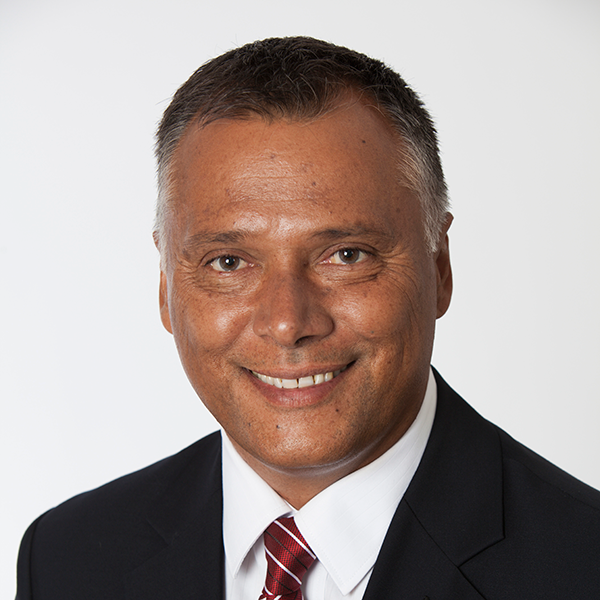
Stan Grant is a renowned journalist, author, moral philosopher, thinker, film maker and communicator. He has had a groundbreaking four-decade career as one of Australia’s most awarded journalists.
A Wiradjuri, Kamilaroi and Dharrawal man, Stan has blazed a trail for First Nations journalists. In a career of firsts, he was the first Indigenous Political Correspondent, the first Indigenous Foreign Correspondent, he was the first Indigenous person to present a prime time commercial television news and current affairs program. For a decade he was a senior correspondent for American news giant CNN based in Asia and the Middle East. He has reported from more than seventy countries and has lived in London, Abu Dhabi, Dubai, Doha, Hong Kong, and Beijing.
His list of awards include three time winner of Australia’s highest journalism honour the Walkley Award, four time winner of the prestigious Asia TV awards, an Australian TV Logie Award, twice winner of the Australian Academy of Cinema and Television Arts award (Australia’s academy awards), twice winner of the US Peabody Award, a recipient of the Columbia University DuPont award (the broadcast equivalent of the Pulitzer Prize), a GQ Magazine Man of the Year award, Hawaii International Film Festival Indigenous Trailblazer award.
He was writer and producer of the acclaimed feature documentary “The Australian Dream” which told the story of the racial vilification of renowned Indigenous footballer Adam Goodes. The film was screened around the world and at last count has claimed more than twenty international film awards.
He continues to write for national and international news publications. In 2023 he was cast in a Hollywood feature film “Ricky Stannicky” Directed by Academy Award winning director, Pete Farrelly, appearing alongside stars William H Lacey, John Cena and Zac Efron.
Keynote Speakers
Esme Ward, Director, Manchester Museum, University of Manchester
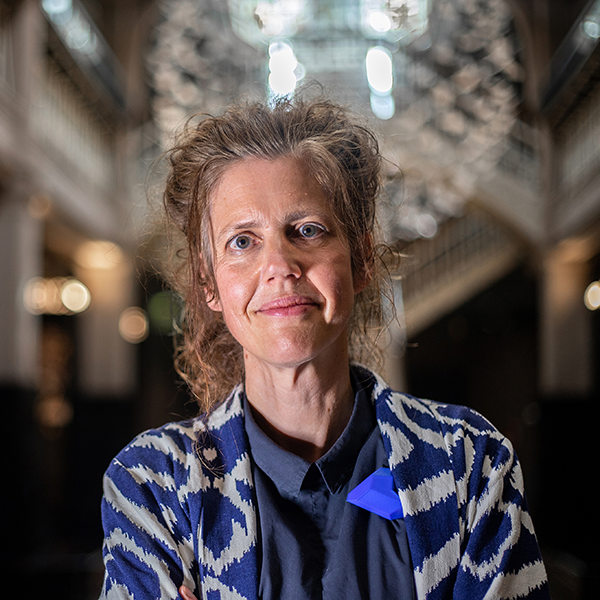
Esme has worked in museums and heritage as an educator and cultural leader for over 25 years, including at the V&A, National Trust, the Whitworth and now, Manchester Museum. She has also worked across sectors, notably health and education. She is Professor of Heritage Futures at the University of Manchester and is a Fellow of the Clore Leadership Programme.
She led the £15 million capital transformation of Manchester Museum which reopened in February 2023, with the aim of renewing its creative and civic mission. She is currently leading work with others to develop practice and policy on repatriation, ecological stewardship and building an ethics of care in museums. She is Co-Chair of the University Museums Group and sits on the National Museum’s Directors’ Executive Council and on the Research England Advisory Group (REAG), Kew’s Wakehurst Advisory Committee and is a Trustee of Hope Valley Climate Action.
Katie Kiss, Aboriginal and Torres Strait Islander Social Justice Commissioner
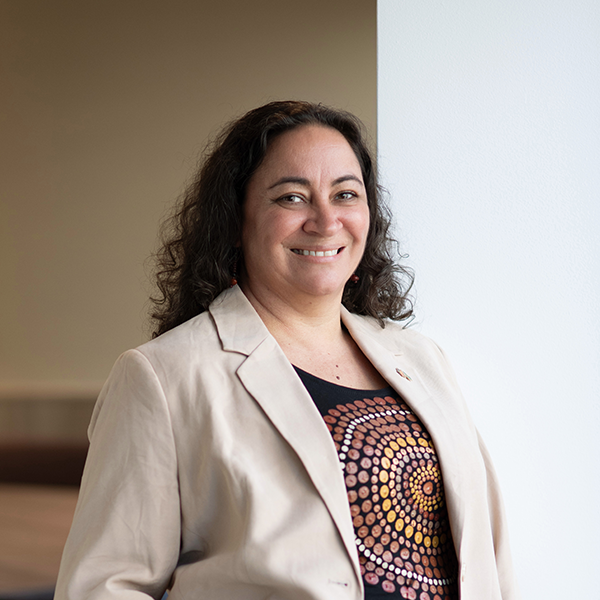
Katie Kiss commenced as Aboriginal and Torres Strait Islander Social Justice Commissioner on 3 April 2024.
Commissioner Kiss is a proud Kaanju and Birri/Widi woman who grew up in Rockhampton, Central Queensland on the lands of the Darumbal People.
She was previously the Executive Director of the Interim Truth and Treaty Body supporting Queensland’s Path to Treaty, and held senior positions in the Queensland Government, including Chief of Staff to the Minister for Seniors, Disability Services and Aboriginal and Torres Strait Islander Partnerships, and Senior Advisor to the Deputy Premier.
Commissioner Kiss also worked for eight years at the Australian Human Rights Commission, where she was the Director of the Aboriginal and Torres Strait Islander Social Justice Team
Christina Snider-Ashtari, Tribal Affairs Secretary, Office of Governor Gavin Newsom, Governor’s Office of Tribal Affairs
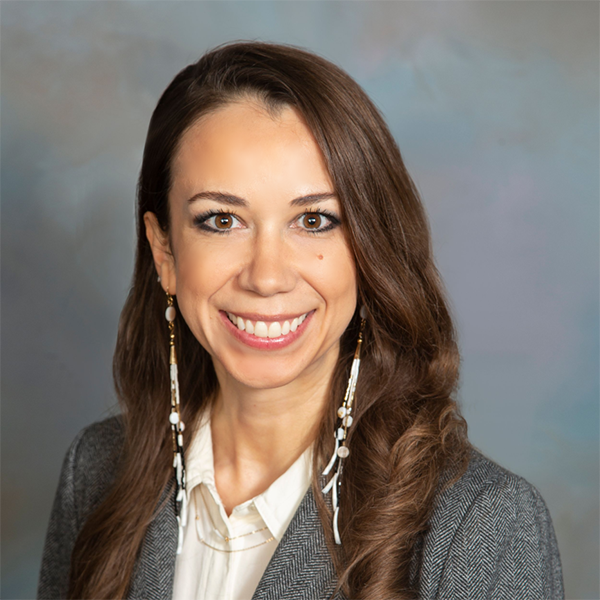
Christina Snider-Ashtari serves as Tribal Affairs Secretary to California Governor Gavin Newsom and leads the Governor’s Office of Tribal Affairs. As a member of the Cabinet, she oversees effective government-to-government consultation between the Governor’s Administration and California tribes; informs, develops and implements policy directives related to tribal governments and Native American communities; oversees the California Indian Heritage Center Task Force and the Tribal Nation Grant Fund Program; and leads the California Truth & Healing Council, an effort aimed at shifting the California narrative and providing historical restorative justice for the first people of California. Secretary Snider-Ashtari is Mihilikawna and Makahmo and an enrolled member of the Dry Creek Rancheria Band of Pomo Indians in Sonoma County, California.
George Nona, Chairperson, Torres Strait Regional Authority

In 2025, Mr George Nona was elected in his first terms as the Chairperson of the Torres Strait Regional Authority (TSRA - one of the nation’s most remote Australian Public Service (APS) agencies). Mr Nona is a proud Badulaig, Goemulaig, Sailbailag, Mua and Erub man from Badu and live on Waiben (Thursday Island). He brings more than 30 years of experience in the public service from biosecurity to border force (Australian Customs). Mr Nona’s service to the Zenadth Kes (Torres Strait) community includes more than 15 years as a senior pastor and volunteer work with youth and sporting groups. An avid rugby league fan, he is a strong advocate for health and wellbeing. The father of seven is passionate about creating more opportunities for young people across the region, from the outer islands to the mainland communities of Bamaga and Seisia in the Northern Peninsula Area (NPA). His priorities include youth engagement, economic participation in fisheries and quality infrastructure for the region to help address local issued faced y communities. Mr Nona is committed to serving community members from all walks of life with an open-door policy in partnership with the TSRA Board and Administration.
Tom Calma, National Coordinator Tackling Indigenous Smoking, Department of Health and Aged Care
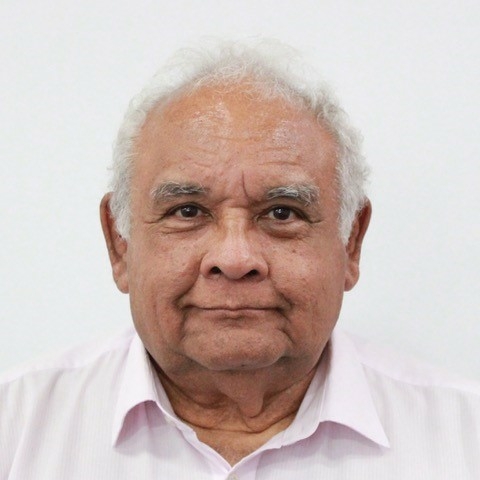
Professor Tom Calma AO FAA FASSA FAHA FANZSOG grew up in Darwin, is of Kungarakan, Iwaidja and Woolwonga descent from the Top End and he now lives on Ngunnawal country in Canberra. Graduating in social work and community development in 1978 he has a long and distinguished career in academia, public service bureaucracy, social justice and community development.
He is the National Coordinator Tackling Indigenous Smoking (2010-present), a Professor (2015-present) and Fellow of the Senate (2024-2028) at the University of Sydney and Patron of the five national Poche Centres for Indigenous Health (2010 to present). Professor Calma was a former senior diplomat to India and Vietnam (1995-2002), Chancellor of the University of Canberra (2014-2023) and he previously served as the Aboriginal and Torres Strait Islander Social Justice Commissioner (2004-2010) and the Race Discrimination Commissioner (2004-2009) with the Australian Human Rights Commission. Tom is chair of an Indigenous company, Ninti One Ltd since 2011 and is a director on the Ninti group of entities. He co-chaired Reconciliation Australia (2011-2024) and co-chairs the Australian Literacy and Numeracy Foundation and chairs the Living First Languages Platform Company that facilitates the recording of First Nations Languages.
Professor Calma has a special interest in the empowerment and capacity development of Aboriginal and Torres Strait Islander Peoples, Indigenous and non Indigenous health, mental health, SEWB and suicide prevention, early years and higher education, aged care, economic development, justice reinvestment and social justice. His 2005 Social Justice Report on First Australian’s health inequality led to the creation of the Close the Gap Campaign and the governments’ Closing the Gap response that is still the predominant Indigenous Health policy today.
Professor Tom Calma was the 2023 Senior Australian of the Year and he is an inaugural member of Cancer Australia’s Indigenous Cancers Leadership Group a member of the Australian Medical Research Advisory Board.
Almandina Cárdenas Demay, General Coordinator of Language Policies, National Institute of Indigenous Languages (INALI), Mexico
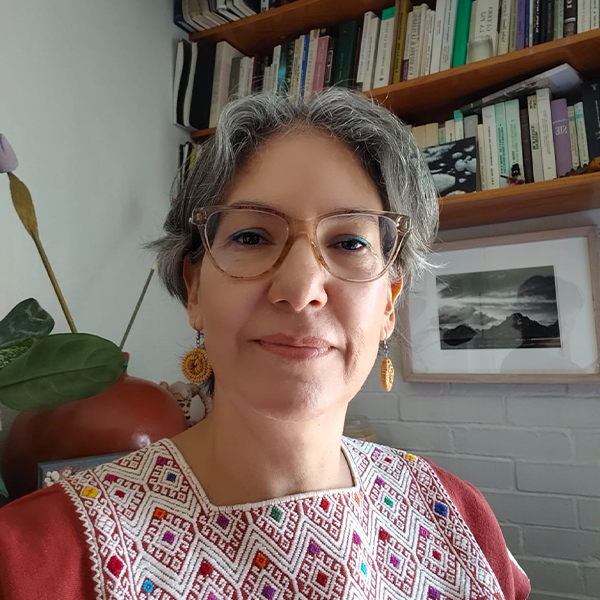
Almandina has been a part of the Instituto Nacional de Lenguas Indígenas (INALI) since 1 November 2019 and currently serves as the General Coordinator of Language Policies and formerly as the Deputy General Director of Academic and Language Policies. In her position, she leads the design, implementation, monitoring, and evaluation of strategies aimed at preserving, revitalising, strengthening, and developing Indigenous languages.
Almandina's professional interests include linguistic diversity, the protection of linguistic rights, and the political organisation of culturally and linguistically diverse nations. Her career has been dedicated to language policy for Indigenous languages within public institutions, research projects, civil society organisations, and as a consultant and lecturer in higher education.
As a public servant, she has extensive experience in the revitalisation, strengthening, and development of national Indigenous languages. She has played a key role in designing, implementing, and evaluating language policies and planning processes in collaboration with Indigenous communities and various public entities.
Almandina has contributed to numerous presentations and forums and has conducted research and published work supporting the preservation and strengthening of Indigenous languages spoken across the country.
She holds a degree in Special Education, specialising in hearing and language, from the Escuela Normal de Especialización (Teacher Training School). She also holds a master’s degree in Indo-American Linguistics from the Centre for Research and Advanced Studies in Social Anthropology (CIESAS) and is currently a doctoral candidate in Linguistics at UNAM.
Almandina Cárdenas Demay holds a master's degree in Indo-American linguistics and is a doctoral candidate in linguistics at the National Autonomous University of Mexico (UNAM). From 2000 to 2002, she participated in the design and creation of the National Institute of Indigenous Languages, as well as in the legislative debates for the creation of the General Law on Linguistic Rights of Indigenous Peoples, enacted in 2003.
Her main professional career has been in the field of language policy for indigenous languages in public institutions, research projects, civil society organisations, and as a consultant and professor in higher education.
Her professional interests are the richness of linguistic diversity, the defense of linguistic rights, and the political organization of culturally and linguistically diverse nations.
She is currently the General Coordinator of Language Policies at the National Institute of Indigenous Languages, where she directs the design, implementation, monitoring, and evaluation of public policy strategies to promote the preservation, revitalisation, strengthening, and development of Mexico's indigenous languages. These strategies include the professionalisation of indigenous language interpreters and translators, community language development, and the institutionalisation of national indigenous languages.
Laura Jazmín Cotí Lux, Vice Minister of Cultural and Natural Heritage, Ministry of Culture and Sports, Guatemala
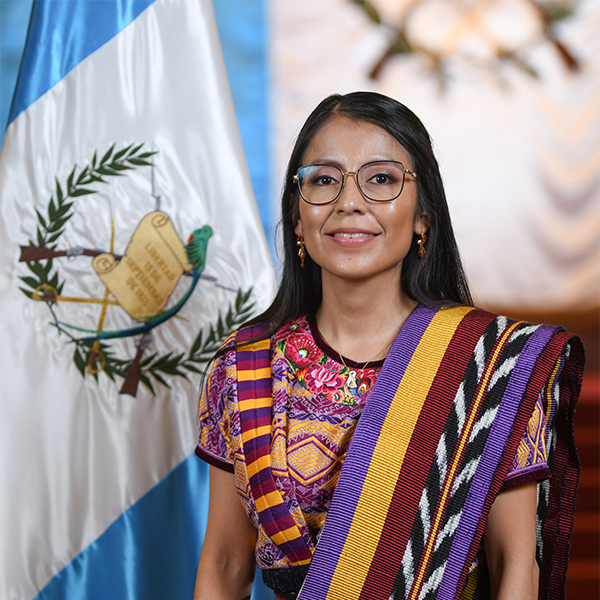
Laura is a Maya woman from Guatemala. She is the Vice Minister of Cultural and Natural Heritage at the Ministry of Culture and Sports, for the Government of Guatemala, and has been in this role since January 2024. In this role, she fosters inter-institutional linkages within the government entities that conserve, research and disseminate Cultural and Natural Heritage to strengthen its protection and promote coordinated and effective work. She ensures that citizen participation is promoted and guaranteed, with a focus on ethnic and gender equity, within the framework of cultural diversity in the formulation, management, administration, and execution of projects and activities related to Cultural and Natural Heritage. She also ensures compliance with the provisions of the Law for the Protection of the Cultural Heritage of the Nation.
Laura has had a dynamic career with experience across roles within the National Secretariat of Science and Technology Gender Unit, the Ministry and Social Welfare in the Departmental and Municipal Headquarters, the Guatemalan American Institute in Cultural Activities, Ministry of Culture and Sports, Directorate of Museums, JMP Design, ARQS. S.A and Rafael Landívar University.
Laura’s formal education includes a Bachelor of Architecture from the Rafael Landfvar University 2006. Masters in Monument Restoration from the University of San Carlos of Guatemala 2008. Masters in Architecture and City Projects specialising in Architecture, Landscape and Environment from the University of Alcalå, Madrid, Spain 2009. Masters in Public Administration, from the National Institute of Public Administration and the University of San Carlos of Guatemala 2023.
Additionally, Laura has contributed to literature through two dissertations; one on Internal policy against workplace harassment and sexual harassment in the National Secretariat of Science and Technology of Guatemala and another on Central American Architecture Biennial, specifically BARCA Remittance.